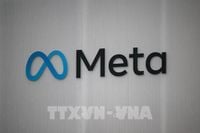Meta, the parent company of Facebook, Instagram, and WhatsApp, has announced plans to oppose penalties imposed by Nigeria for alleged violations of user data protection laws. The company hinted that it may cease operations of its platforms in the country if these penalties are enforced. This development comes as Nigeria, the most populous nation in Africa, intensifies its scrutiny of tech companies regarding data privacy and user protection.
On May 2, 2025, the European Union's privacy watchdog levied a hefty fine of 530 million euros (approximately 600 million USD) against TikTok for transferring user data to China, highlighting the growing global concern over data privacy violations. This fine adds to the ongoing dialogue about the responsibilities of tech companies in safeguarding user information.
In the United States, the Federal Trade Commission (FTC) has filed a lawsuit against Uber, claiming the company misled consumers about the benefits of its Uber One promotion and automatically enrolled users without their consent. This legal action underscores the increasing regulatory pressure on tech companies to maintain transparency and accountability in their business practices.
In a related context, a new law aimed at promoting private economic development has been proposed to optimize the growth environment for private enterprises in the country. This initiative is part of a broader effort to ensure that all types of economic organizations can participate equally in market competition.
Meanwhile, the Ministry of Culture, Sports, and Tourism in Vietnam has issued sanctions against two editors and a television host for violations related to advertising regulations. These actions reflect the government's commitment to uphold standards in media and advertising practices.
On the legislative front, the Vietnamese government has reached a consensus on a draft resolution concerning special mechanisms and policies to create breakthroughs in law construction and enforcement, which is expected to enhance the legal framework governing various sectors.
In terms of public safety, road traffic police have been active in addressing violations, having processed 41,776 cases of traffic offenses, temporarily seized 221 cars, 11,335 motorbikes, and 351 other vehicles. They also revoked 1,313 driver's licenses and handled over 9,000 cases related to alcohol consumption violations.
In the healthcare sector, the Ministry of Health has urged the Director of the Department of Health in Nam Dinh province to review the emergency response process for a child, M.T.A., treated at Nam Dinh General Hospital, emphasizing the need for prompt and effective medical care.
In a significant move towards enhancing child safety online, Meta is deploying artificial intelligence (AI) to detect users who misrepresent their age on social media platforms. This initiative, reported on April 22, 2025, aims to automatically identify and transfer accounts of underage users to 'Teen Accounts.' These accounts are designed to limit access to sensitive content, reduce usage time, and protect minors from online risks.
In Vietnam, where 82% of children aged 12-13 use the internet daily, this technology is crucial in addressing the challenges posed by online exposure. The AI system analyzes user behavior to estimate actual age, even when the declared information is incorrect. It considers factors such as usage behavior, search history, social networks, and language context.
When an account is flagged for age misrepresentation, the system activates protective measures, including content restrictions, limited contact options, and usage time controls. Meta claims that 97% of users under 16 retain these protective measures, which significantly mitigate the risks of online addiction, bullying, and sexual exploitation.
Dr. Nguyen Thi Mai Huong from Hanoi Medical University emphasizes the importance of such measures, stating that social media can expose children to various dangers, including addiction and online harassment. The 'Teen Account' feature is expected to reduce these risks by 70%.
Moreover, the AI initiative enhances parental awareness, as Meta sends notifications to parents via Instagram, explaining the importance of accurate age reporting. This has reportedly helped 60% of parents better monitor their children's online activities.
Legally, the initiative aligns with regulations such as the Children's Online Privacy Protection Act (COPPA) in the U.S. and the General Data Protection Regulation for Kids (GDPR-K) in the EU, which mandate age verification for online services. By employing AI, Meta aims to comply with these regulations while avoiding potential fines that could reach up to 40 million USD.
However, the deployment of this AI technology has raised concerns regarding privacy and data security. Critics argue that the analysis of personal data may lead to misuse. Despite Meta's commitment to encrypting user data, a significant portion of Vietnamese users remains apprehensive about privacy issues.
The accuracy of the AI system is also under scrutiny, with Meta acknowledging a 5% error rate in age estimation. Children may attempt to bypass the system using VPNs or fake accounts, which could diminish the effectiveness of the protective measures by 20%.
Furthermore, the limitations on daily usage—capped at two hours—have sparked dissatisfaction among younger users, many of whom typically spend three to five hours on social media daily. This restriction has been met with complaints from users who feel that it disrupts their online engagement.
In Vietnam, where social media is integral to daily life for 70% of the population, the impact of Meta's AI technology is profound. Children aged 12-15 are expected to benefit from reduced exposure to harmful content, which could decrease the likelihood of psychological disorders by 50%.
However, the two-hour limit may pose challenges for students who utilize Instagram for educational purposes, such as group study or live streaming sessions. Additionally, businesses that advertise on these platforms, like Shopee and Lazada, will need to adjust their strategies to avoid targeting users under 16, which could reduce campaign effectiveness by 15%.
The community response has been mixed, with some praising Meta for its proactive stance on child protection, while others express concerns about the implications for personal data security. Experts call for clearer data protection laws in Vietnam, similar to the GDPR in Europe.
Looking ahead, Meta plans to expand its AI initiatives to Facebook, Messenger, and other platforms while testing the technology in 43 countries, including Vietnam. If successful, Meta could achieve compliance with 'Teen Accounts' for 80% of users under 16 by 2026.
In conclusion, Meta's AI deployment to detect age misrepresentation represents a significant advancement in online child protection, particularly in Vietnam, where internet usage among minors is prevalent. While the technology offers numerous benefits, it also faces challenges related to privacy and accuracy. Collaboration between Meta and local authorities is essential to foster a safer online environment for children.




